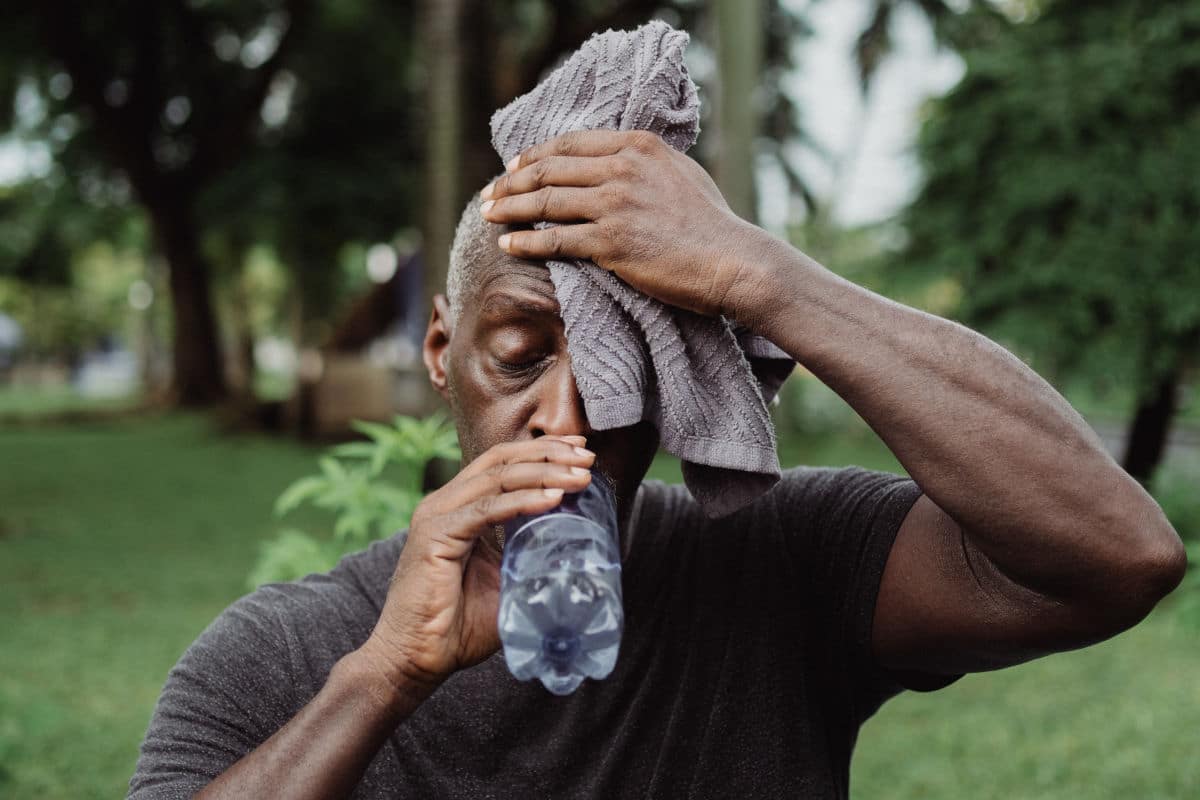

There are still many unanswered questions about the impact of climate change on our health. RIVM has drawn up an action plan to tackle this.
“Insufficient knowledge to protect health in the Netherlands against climate change.” That’s what the headline said last week press release of the National Institute for Public Health and the Environment (RIVM). In order to close this gap in our knowledge, the institute commissioned a plan of action on. It lists the questions we need to answer in order to know what climate change will do to our physical and mental health.
Many questions
It is important to prepare the Netherlands and the Dutch to reduce climate change and its health risks, RIVM writes. “But without knowledge about the health effects of climate change, governments cannot take the right measures.”
And in many cases we do not have that knowledge. “How strong dykes must be to make the Netherlands climate-proof is something that has been researched for decades,” says Joost van der Ree, climate program manager at RIVM. “But there are still a lot of questions about health themes.”
More hay fever
An example is hay fever. “It is known that the hay fever season will last longer due to climate change,” says Van der Ree. “Some plant species start to flower earlier, and we get new ones. The increasing amount of carbon dioxide also causes more pollen in the air. In total, we know: hay fever will increase.”
But at the moment we don’t even have a good idea of the number of people who now suffer from hay fever, the RIVM researcher continues. “Many people do not go to the doctor if they have hay fever, but buy a remedy at the pharmacy or drugstore.” We will therefore first need to properly determine the current disease burden of hay fever, before we can investigate what kind of scoop climate change will add to that.
Flood stress
The authors of the report also note that in many health topics, several factors are intertwined. For example, suppose someone dies during a heat wave. “Then it is important to know whether people die from heat, from too much ozone, or from a combination of both during periods of heat,” RIVM writes in the newspaper. summary of the new report† That is why it is important to make the different fields that focus on a certain health effect of climate change work together.
A relatively new topic the report charts is the mental effects of climate change. The summary mentions flood stress as an example. “Or: what will it do to a farmer if he loses his business due to climate change?” adds Van der Ree. Such questions are also included in the report, although they are “often easier to ask than to answer”, sighs Van der Ree.
The choice lies with the cabinet
And what happens now? Will RIVM, together with other institutes, complete the entire questionnaire in the coming years in order to actually arrive at answers? “That choice rests with the cabinet,” says Van der Ree. “They may feel that it is not opportune to do something with this, or to invest heavily in it.”
Looking back, Van der Ree has to conclude that with previous reports on the subject, such as Climate and Health from 2009, sometimes little has been done. And later reports led to measures, but not to more research. “The same questions remained. No attempt was made to further develop the knowledge relevant to the Netherlands.”
Also positive effects
Incidentally, there are not only drawbacks to climate change, says Van der Ree. “When it gets warmer, more people die from the heat, but fewer from the cold. And if people start cycling more often because of the nicer weather, they exercise more. So in addition to risks, there are also positive effects.”
Furthermore, we have been relatively hit in the Netherlands, he continues. “The really fierce impacts of climate change will take place in other countries. Here too policy is needed, but we have money, and we have our location with us. It will certainly get warmer here, but we won’t see temperatures of around 50 degrees here.”
Source material:
†Action plan Climate Change and Health Effects Research Program” – RIVM
†Insufficient knowledge to protect health in the Netherlands against climate change” – RIVM
Joost van der Ree (project leader climate RIVM)
Image at the top of this article: Ketut Subiyanto via Pexels